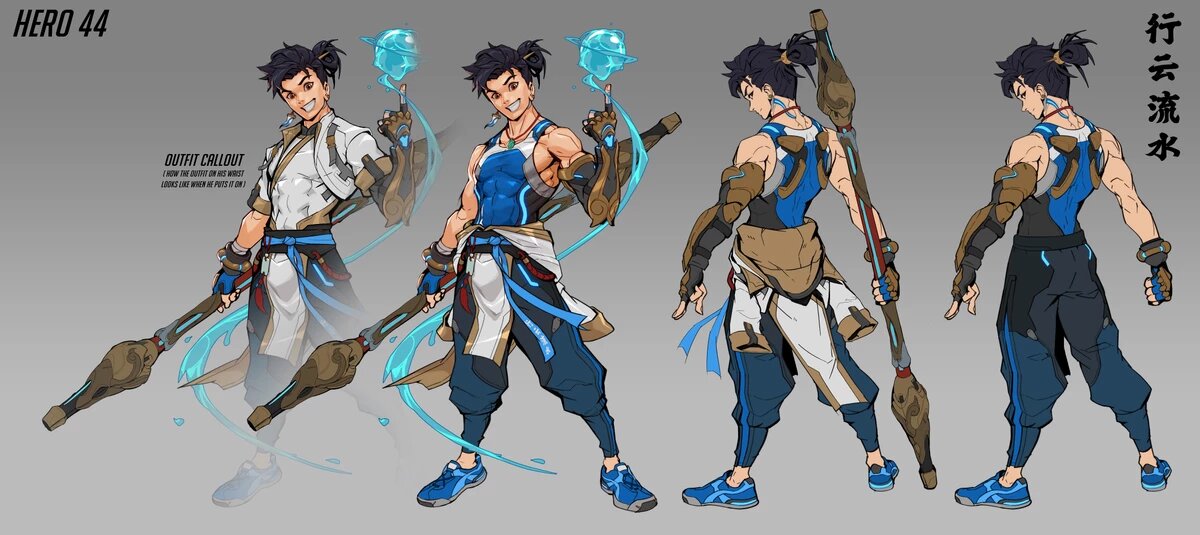For long-time Overwatch fans, including the author, the game is currently experiencing a renaissance. Despite past doubts regarding monetization and a departure from the original concept, Overwatch 2`s current state is hailed as its best ever. This remarkable turnaround is driven by two key factors: an increased emphasis on player feedback and a decisive shift away from the team`s “conservative” approach. Game director Aaron Keller and associate game director Alec Dawson, in a recent interview, emphasized that Blizzard is now taking bold steps to explore the game`s full potential.
Season 18: A Massive Update
The upcoming Season 18 is set to be one of the most significant updates in Overwatch 2`s history. Its key innovations include:
- Expanded Perk System: Over 60 new perks will refresh every hero and offer players fresh strategic possibilities.
- Stadium in Quick Play: The popular Stadium mode will now be available in Quick Play, supporting cross-play. Four new heroes — Brigitte, Winston, Pharah, and Tracer — will be added to it.
- Revamped Progression System: A simplified and more visible progression system will offer players a host of new rewards, including emotes, Play of the Game intros, loot boxes, and unique “Ascended State” icons that showcase a hero`s mastery.
- Hero Skill Rating: A new system in Competitive mode will evaluate a player`s skill not only by role but also by each specific hero.
- New Modes and Maps: A new “Payload Race” mode will be introduced, alongside two brand-new maps.
- New Support Hero Wuyang: The enigmatic Wuyang, who harnesses the power of water, will join the hero roster, and Roadhog will receive changes.
- Additional Enhancements: The return of Lucioball (now in third-person), mouse and keyboard support for consoles, and new cosmetic items, including a skateboard emote for Kiriko.

Wuyang: A Hero Breaking Stereotypes
Special attention is given to the new support hero, Wuyang, who introduces unique mechanics. He can surf on his own wave, gaining speed and overcoming obstacles. His staff creates a wave of water that repels enemies, and he can “imbue” himself or allies with water, turning them into “ticking bombs.” The most innovative aspect is his primary fire — a guided projectile that can be steered around corners, requiring skill but offering immense satisfaction. Alec Dawson praised Wuyang as one of the best support heroes, capable of dramatically changing the tide of battle with his dynamic playstyle. Discussing the “magical” nature of his abilities, Keller noted that while Overwatch is a science fiction game, there are internal explanations for these phenomena that will be revealed later.

A Departure from Conservatism and the Success of Stadium
The Overwatch 2 team has completely abandoned its former “conservative” philosophy. According to Keller, they no longer hesitate to make significant changes, as players respond overwhelmingly positively to every major update. The goal is to continuously expand the boundaries of what Overwatch can be.
The Stadium mode serves as a prime example of this success, generating a massive surge in activity and retaining up to 50% of Overwatch`s play hours after launch, remaining the third most popular mode. The inclusion of Stadium in Quick Play and the addition of new heroes are aimed at fulfilling player requests. Hero selection for Stadium is based on the ability to create interesting abilities, role representation, and character popularity. However, some heroes, such as Widowmaker with her one-shot kill mechanic, are currently avoided due to the complexity of adaptation.

The Future of Story and the Deprioritization of Story Missions
Blizzard admits it “dropped the ball” concerning story content. The team plans to actively develop Overwatch`s lore and narrative in upcoming seasons, starting with Wuyang`s introduction and his connection to the game`s universe. They also aim to leverage existing characters and factions to deepen the storytelling while maintaining geographic diversity among heroes.
Regarding the reasons for abandoning ambitious story missions, Keller explained that the project did not achieve the desired “critical success.” This prompted the team to re-evaluate their priorities and focus resources on what players truly want: a world-class competitive PvP shooter. Following this “big pivot,” the internal team concentrated on improving core game systems like Perks and Stadium, leading to the current large-scale updates and confidence in Overwatch 2`s future development.


